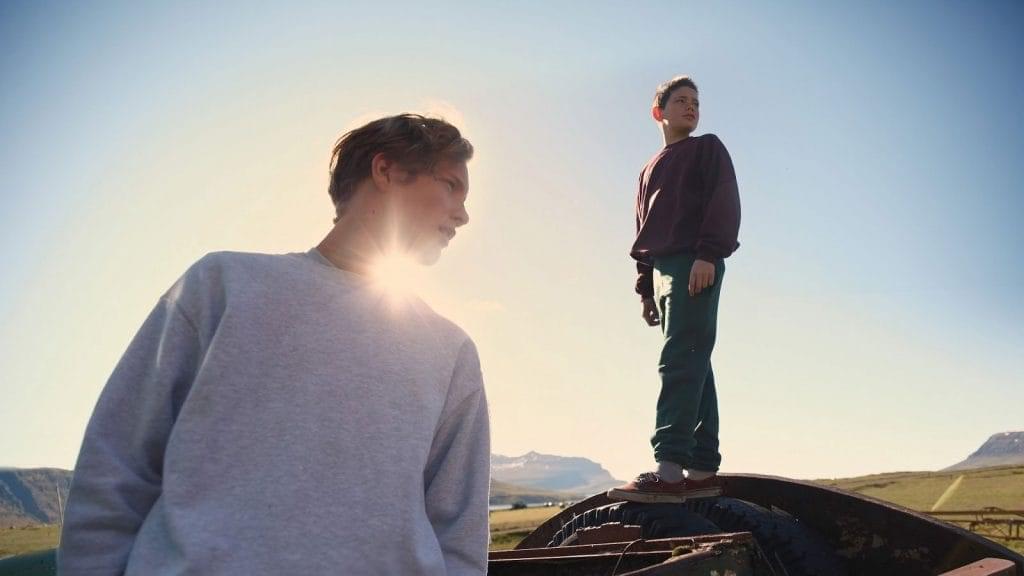
Few people in the reel world (let alone the real world) look to Shreveport, Louisiana, as a source of challenging artistic considerations. But the small microcinema known as minicine? (yes, that is how it is spelled!) brought the best of contemporary underground cinema to the culturally sophisticated citizens of Shreveport.
Microcinemas are often the only way for audiences to connect with films being made and marketed outside of the so-called independent film world (which, increasingly, looks more and more like Hollywood-Lite). This is especially crucial in second-tier cities which often have no outlet for such productions. While minicine? occasionally presents commercially released works of social provocation, such as Fahrenheit 9/11 and The Weather Underground, it primarily focuses on the best of today’s underground and experimental cinema. With local and touring offerings ranging from “The Super Super 8 Film Festival,” to archivist Bill Taylor’s hilarious collection of vintage anti-gay “educational” films entitled “Lock Up Your Sons & Daughters” to multimedia presentations by artists including Luis Recoder, minicine? has offered a startling mix of alternative cinematic considerations to Shreveport audiences.
Film Threat spoke with David Nelson, the creative and administrative force behind minicine?, to learn more about this small but vibrant force in alt.cinema.
Can you give us a brief rundown of minicine?
minicine? is all about creating an environment for artist / audience interaction. There is a certain irony to the fact we are talking about this now, in that, we have been screening films for almost 20 years and the entire project is now in crisis due to a neighboring real estate speculator gone amok. See the photo on our site (http://www.swampland.org).
Shreveport is too small and isolated to have an indie film scene, but there are a handful of people here who are into the essence of hand made film, experimental film, self-made narrative film. These are the volunteers who operate our venue or are key supporters. In any given moment, these volunteer / supporters are spread out in other parts of the country. At a larger scale, Louisiana, in general, seems to be developing an unusual amount of film activity for whatever reason.
And who exactly are you? Are you a filmmaker, writer, archivist, etc?
By profession, I am an architect who began using film as an extension of photography to short cut / record investigations of architectural issues in the early 80’s (in my early twenties). I kept an 8mm Bolex in my back pack to supplement (or expand) my sketch books. Any films I made then are sketch book entries, which sometimes have a life of their own. I have always enjoyed study of experimental film which has informed my work in architecture. I did read too much work by anthropologist, Loren Eisely, philosopher/scientist Gaston Bachelard, and writer, William Goyen, in the early 80’s.
What is the history of minicine? When did it begin, why did it begin, and who operates it?
minicine? is a really small microcinema originating out of contact with groups like: Funnel, Toronto; Other Cinema, San Francisco; Austin Film Society, Austin, TX; during the 80’s, simultaneous to studio (home) screenings while living in Texas in the early 80’s with DIY filmmakers like Roger Justice, Bill Daniel, Liz House. This eventually led to public screenings by founding Basement Films in Albuquerque, Nm, in 1992. A move to Louisiana in 1995 led to founding of minicine? Major direct influences for minicine? were countless independent conversations with Kurt Kren, Stan Brakage, Craig Baldwin, Bill Daniel, Liz House ( a Montessori School teacher and photographer/filmmaker) and Carol Williams (Director of Zia Cine, Santa Fe, NM).
minicine?‘s primary interest has always been hand made small gage film which, today, is probably its weakest and strongest attribute. minicine? has always been totally volunteer operated, inclusive and multi-diciplinary. A typical show includes film screenings, exhibits of art, performance art or music. We have tried to show about every possible way film can be used as an expressive medium. minicine? began both to provide a an outlet for DIY work, as well as to provide a vehicle to see what other DIY filmmakers were making… In my mind, the “microcinema movement” is an extension of the “studio (home) screening” where one shows their own work and sees what others are working on, and where ideas are exchanged. Today, over a hundred or so shows later, this often takes a different form.
While we host mostly touring DIY filmmakers for public shows, often we have “after hours” when the more interested audience members retire to separate space to break out what they have been working on to share with the visiting filmmakers. The visiting filmmakers often pull out work not part of their public screening. minicine? has never really structured itself, turned into a 501(c)3, or set up any committees, because it really is just about the ephemeral exchange. When its audience or artists find another way to access this, minicine? will cease to exist.
Who are the audiences for minicine?
Our audience is primarily artists, musicians, filmmakers, lot’sa arts people… shows average 40 but have been up to 1000.
What is the state of independent filmmaking in Louisiana? And how does minicine? help Louisiana filmmakers?
Louisiana is going through some sort of film craze. minicine? is just a little stone in the brook. Our audience and volunteer base is pretty young and without resources; they (we, I am 48 now) are definitely dreamers.
What value can alternative venues like minicine? provide in assisting indie filmmakers in building their reputations within the film industry?
minicine?‘s first goal is to get the artist to the audience and get the audience to the artist. Our whole effort is about creating the environment for this interaction. Filmmakers who go beyond this do it totally on their own. Over resume building, I think this interaction is what both benefit from the most. We do a lot of free screenings and we are not a business.
